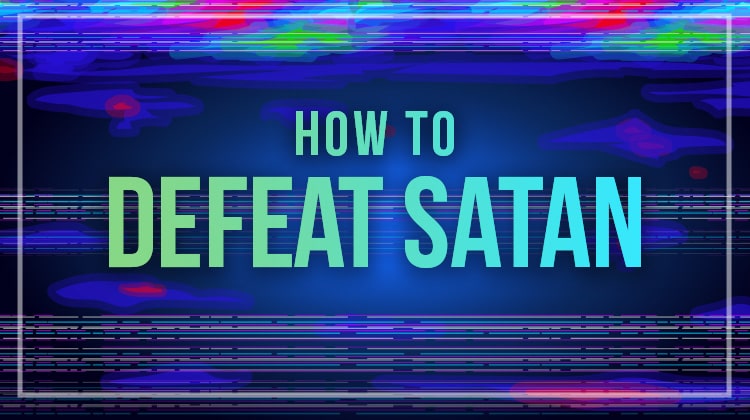The original video games that appeared in the seventies and eighties weren't rocket science. They required some hand-eye skills, yes. But intellectually speaking, they were marketed to young people, not Ph.D.s (though plenty of Ph.D.s played them at night after their children were in bed!).
Pong (1971) was a black-and-white game of v-e-r-y slow ping-pong. Space Invaders (1978) wasn't much better—it allowed players to destroy never-ending waves of digital invaders. Frogger (1981) featured a hapless frog trying to cross a ten-lane freeway. But Pac-Man (1980) was a step up: Pac-Man chomped his way through a maze, eating pac-dots while avoiding four enemies. Victory took the player to a new level requiring him to watch for appearing and disappearing game aids. Finally, Mario Brothers (1983) required a whole different mental level. Its hidden features engaged the player's mind as much as his or her hands and eyes.
Now, compare the simplicity of those early games with the unbelievable complexity of a game called EVE Online (2003)—an international, multiplayer, role-playing Star Wars-type game.
One session, the Battle of B-R5RB, lasted 22 hours and involved 7,548 people around the world, and cost $300,000 in real money—money spent by players to purchase positions and armaments. There are 5,431 known galaxies, 2,498 "uncharted wormhole systems," six major coalitions of players controlled by "fleet commanders," the largest of which has 36,432 players scattered across the globe. Warships take weeks or months to build.
Reading about the Battle of B-R5RB is enough to give me a headache. It makes the Allied landing at Normandy seem small by comparison. I know—these are games, not actual events. But the intellectual horsepower needed to conceive, build, and then play these complex games is no less impressive than other significant intellectual accomplishments in life.
Even though nothing in a warfare video game is real, they serve as an apt metaphor: The mind is critical. There is so much to learn and remember! That's why many games like EVE Online have no ultimate win-lose feature; the games go on indefinitely and require constant mental attention and progress.

In the same way, the mind is the most critical part of spiritual warfare. Without the active engagement of the mind—learning, thinking, discerning, understanding, deciding, committing—we are doomed to spiritual defeat by Satan. That is why the Bible speaks of the mind and thinking so often (nearly 150 times).
Step One: Renew Your Mind
As the great teacher and writer Oswald Chambers wrote, "Your mind is the greatest gift God has given you and it ought to be devoted entirely to Him. You should seek to be 'bringing every thought into captivity to the obedience of Christ...' (2 Corinthians 10:5). This will be one of the greatest assets of your faith when a time of trial comes, because then your faith and the Spirit of God will work together." 1
Whether the mind is the greatest gift of God or one of God's greatest gifts doesn't matter—Chambers' point is well made: Whatever is greatly valued by God will be greatly contested by Satan. We can go so far as to say that the human mind is the ultimate battlefield for spiritual warfare.

Satan is more concerned about what we think and believe than about anything else.
Jesus called Satan "the father of lies" (John 8:44, NIV). Why? Because his chief strategy is to deny, confuse, misrepresent, or counterfeit whatever God has said. God's native language is truth (John 17:17), and Satan's native language is lies (John 8:44). The domain in which we decide what is true and what is false is the mind. As Oswald Chambers pointed out, Paul told the Corinthians they needed to "[bring] every thought into captivity to the obedience of Christ" (2 Corinthians 10:5).
When it comes to the struggle over our mind, we must remember the truth of 1 John 5:19: "...the whole world lies under the sway of the wicked one." Satan doesn't own this world, but he has access to it. His influence reaches government, education, entertainment, business, the family, ecclesiastical realms—everywhere! The mind that knows no better will receive what the world dispenses and believe that's all there is.
That's why the apostle Paul told the Romans, "And do not be conformed to this world, but be transformed by the renewing of your mind." That is the only way to "prove what is that good and acceptable and perfect will of God" (Romans 12:2). And it is also why Jesus said we must love God with all our heart, soul, and mind (Matthew 22:37).
Just as going deeper and deeper into new levels of a massive video game would require dedicating our mind to learning new information and strategies, so going deeper and deeper into the knowledge of God means loving Him with all our mind. God is infinite, and the human mind may as well be: It is estimated that a mouse brain contains 70 million neurons, and a human brain contains 1,000 times that many neurons (70 billion). Neuroscientists who are creating 3-D images of a mouse brain's neurons have so far re-created a segment about the size of a grain of salt. The data contained in that tiny segment is about 100 terabytes—the equivalent of 25,000 high-definition movies.2 Imagine the amount of data held in the entire mouse's brain—and then in the human brain!

Such mind-boggling capacity has many implications. First, we have more than a lifetime's worth of renewing to do. Second, there is a lot of mental capacity for us to safeguard against the lies of Satan.
Step Two: Safeguard Your Mind
Whether it's a battle as simple as returning a white digital ball in Pong or as complex as conquering an endless universe in EVE Online, the mind is critical. How much more vital is it, then, to safeguard our thoughts in our struggle against the schemes of one as powerful and tricky as Satan? God’s Word offers these strategies for guarding our mind:
- Protection begins with salvation. The "helmet of salvation" (Ephesians 6:17) means we have protection from the lies and influence of Satan. Not being saved means not having "the mind of Christ" (1 Corinthians 2:16).
- Prayer is the path to peace of mind (Philippians 4:6-7). When we submit every worry or matter of spiritual confusion to God in prayer, we can rest in His protection. Our heart and mind are guarded by "the peace of God" (verse 7).
- Preparation is an action word. Peter says we are to "gird up the loins of [our] mind" (1 Peter 1:13)—a reference to ancient military readiness. We prepare our mind for spiritual battle by renewing it daily through the study and consideration of Scripture.
- Primacy of mind means, "Set your mind on things above, not on things on the earth" (Colossians 3:2; also Philippians 3:19). Yes, we have to give thought to life on earth. But we do not set our mind on earthly things as a source of values, fulfillment, or truth.
- Position means "place of mind." It refers to the permanent focus for our mind: "You will keep him in perfect peace, whose mind is stayed on You, because he trusts in You" (Isaiah 26:3). Everybody trusts in something, but only the mind positioned toward God has perfect peace.
- Process refers to being "clear minded" (1 Peter 4:7, NIV 1984).
We must have a biblical grid through which we process and evaluate everything we take in from every source. We allow nothing to find a permanent place in our mind that does not square with God's Word in terms of purity, importance, truth, and edification.
You may be like me—not a big consumer of video games. But I appreciate what can be learned from them. They are "mind games" for entertainment, but the mind games Satan plays are deadly serious. Take a moment and dedicate your mind to God for His glory—and use the six strategies above to safeguard it daily.
Sources:
1 Oswald Chambers, My Utmost for His Highest, February 11 reading, http://utmost.org/is-your-mind-stayed-on-god/.
2 Carl Zimmer, "Secrets of the Brain." National Geographic, February 2014, 39, 43.

